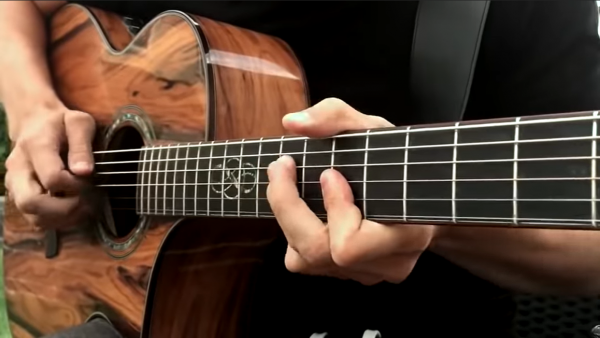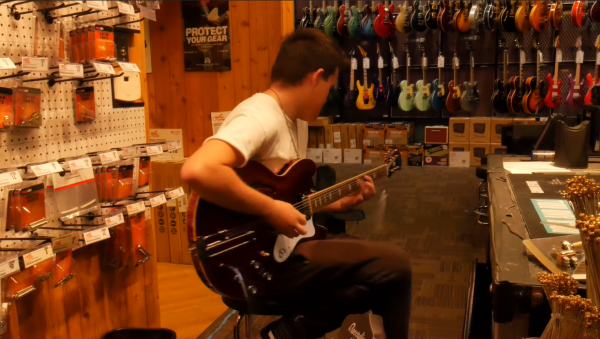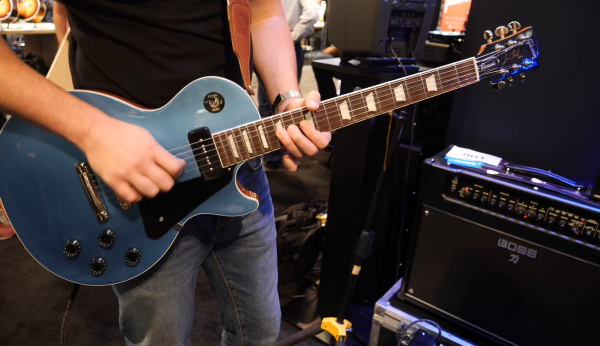The first thing every guitarist does is buy a guitar – but once guitar becomes a lifelong hobby, you’ll often find yourself buying and selling guitars over and over again.
For many guitarists, a “condition” known as GAS, or Guitar Acquisition Syndrome takes over your brain, whereby the time you SHOULD be spending practicing guitar gets used instead to look at guitars online, browse used listings, and argue with strangers over your next purchase.
Either way, whether it’s your first purchase or your 50th, there are a number of key things to keep top of mind when buying or selling – here are some of the best.
Buying Tip #1 - Pick the right kind of guitar (electric, acoustic or classical)
Many people repeat the old myth that you “should” start on an acoustic guitar – but that’s nonsense.

“If you want to play metallica, it makes no sense for you to start out with an acoustic,” according to Brian Kelleher, founder of online guitar magazine KillerGuitarRigs.com, “You’ll get bored fast! Start with the style of guitar that you’ll spend the most time playing.”
To figure out the right style for you, watch some videos of your favorite bands playing your favorite songs. Soon you’ll recognize an electric from an acoustic, and from there, you should be better prepared to pick the right guitar for you.
Buying Tip #2 - Go to a store if you can.
You can get a lot of great deals online, but if you have a good local guitar store, it’s going to make buying a guitar much easier – especially if it’s your first guitar. Having somewhere to take it should it have issues is much better than mailing it back, and getting to know people in the store can give you an “in” with local musicians.

Buying Tip #3 - Bring a clip-on guitar tuner to the store
Unless the people working in the music store spend all day tuning guitars, you’re going to find almost every guitar out of tune to some degree. Bring a clip-on tuner with you so you can quickly tune up and get a faster idea of whether this is the guitar for you!
Buying Tip #4 - Bring someone who knows about guitars if you can
The people who work at guitar stores can be very helpful, but with the big box stores, you might find yourself stuck with someone who just wants to make a sale. Reach out to your friends and see if someone has a brother or sister who knows about guitars who would come to the store with you and help you pick out the right instrument for you.
Buying Tip #5 - Get the one you want
Some people will tell you a Les Paul is the best guitar; other people will tell you a Bullet Strat is the perfect guitar – don’t fall for it. Buy the guitar you want. If your dream is a Dimebag Dean From Hell, get the Dimebag Dean From Hell. You’re the one putting down the money, don’t find yourself bringing home a guitar and realizing it’s not what you really want.

Selling Tip #1 - List the essentials: condition, weight, feel of the neck, action, and setup.
Nothing’s worse than a guitar listing that has no information. The guitar looks good, but you have no way of knowing if it’s been looked after or left in the sun. On the other hand, when someone has a comprehensive listing, you know what you’re in for.
If you want to get the best price for your guitar – and cut down on time-wasting emails – give as much info upfront as possible, starting with the condition of the guitar (more on that later), the weight, how the neck feels, and what profile it is, the current action and the last time you had it set up. Ten minutes of adding all these details can save you weeks trying to sell the guitar.
Selling Tip #2 - List every single defect, scratch, and crack
The last thing you want when you’re selling the guitar is to meet the person to close the sale and have them complain about the condition. Not only that, but if you’re upfront in the ad about every defect (including pictures), you’re going to sell the guitar faster as people will know you’re legit and not trying to hide anything.
Selling Tip #3 - Shoot pictures near a window
Realistically, it’s the pictures that sell a guitar. You can have the best listing in the world, but if the pictures suck, nobody’s going to even read it. Make things easy for yourself, prop the guitar up near a window and get as many bright and clear photos as you can.

Selling Tip #4 - Get every angle possible
You want to leave nothing to chance here, so try to take photos of every part of the guitar – front and back profiles, the headstock front and back, the net, a couple of the neck and frets, the pickup, the controls, the back, the horns, the strap buttons, etc. The more pictures you include, the less that’s left to the imagination.
Selling Tip #5 - Keep the box!
Having a case to sell a guitar with is awesome, but keeping the original box will save you a lot of money, time, and hassle should you come to ship the guitar. If your guitar came with a box, find a way to stash it somewhere, so you already have what you need if you ever need to ship a guitar.
Final thoughts on Buying & Selling Guitars
In an ideal world, you’ll never lose money on a guitar, but if you buy badly or mess up the selling process, you can easily find yourself taking a bath on a guitar purchase.
With these tips in mind, buying and selling guitars should not only be fun – it should be profitable too!
